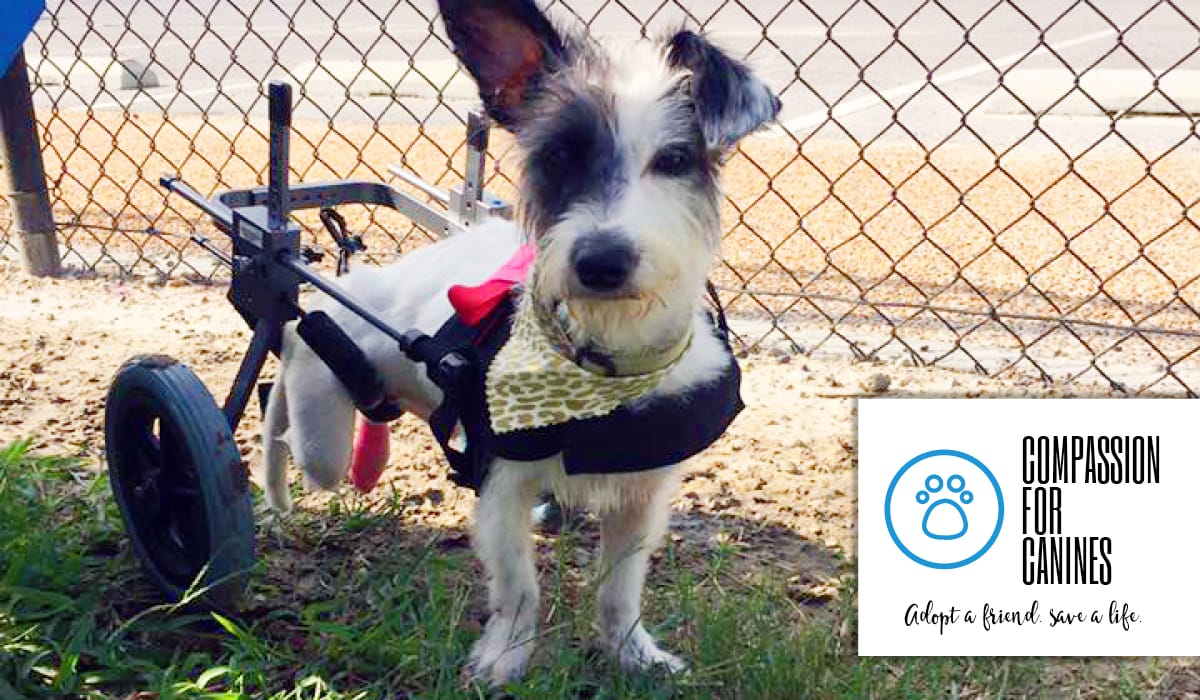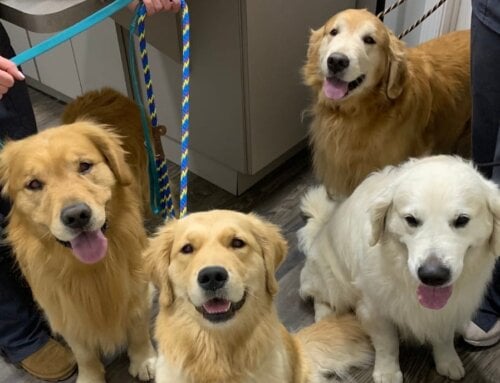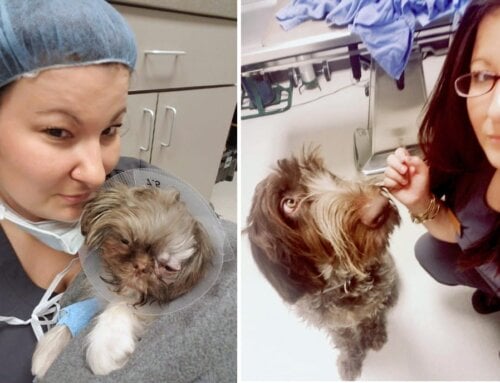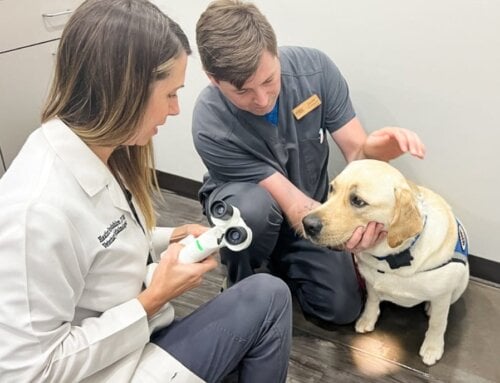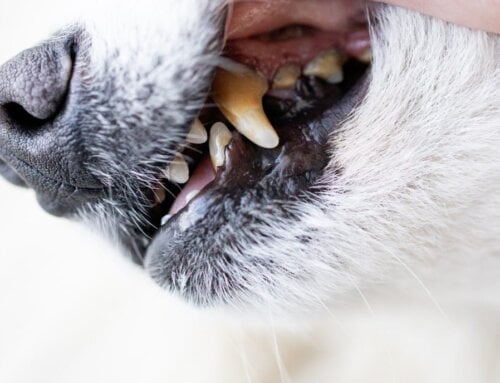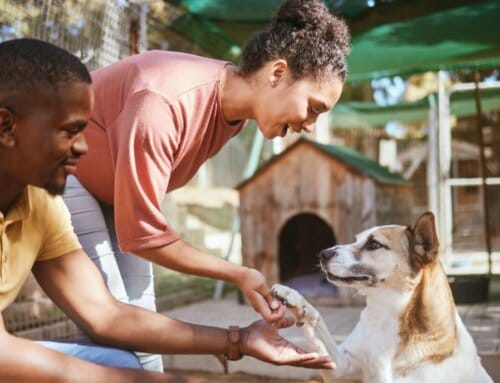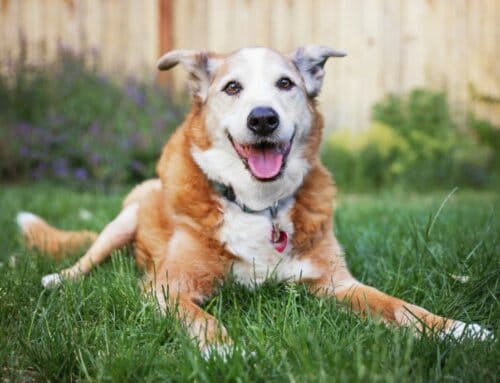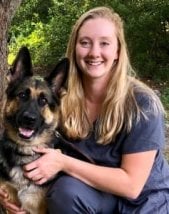 At Animal Vision Center of Virginia, we love working with local animal support groups. In Hampton Roads, we are fortunate to have a variety of animal advocacy nonprofits, from ones that provide wildlife rehabilitation services to others that operate safe places that shelter and adopt out pets. One such group, that is near and dear to our hearts, is Compassion for Canines. This foster-based rescue organization is dedicated to rehabilitating homeless dogs with health issues, then matching them with foster families until they are placed in their forever homes. To learn more about their services, we caught up with Madison Rankin, Compassion for Canine’s founder and president.
At Animal Vision Center of Virginia, we love working with local animal support groups. In Hampton Roads, we are fortunate to have a variety of animal advocacy nonprofits, from ones that provide wildlife rehabilitation services to others that operate safe places that shelter and adopt out pets. One such group, that is near and dear to our hearts, is Compassion for Canines. This foster-based rescue organization is dedicated to rehabilitating homeless dogs with health issues, then matching them with foster families until they are placed in their forever homes. To learn more about their services, we caught up with Madison Rankin, Compassion for Canine’s founder and president.
- Tell us about your organization. Compassion for Canines is a 501c3, nonprofit charity that takes in shelter dogs with medical conditions, provides for their medical care and places them in foster homes until they are adopted. My partner, Lacey Lopez, and I started this organization because we both have a deep compassion and empathy for animals with extenuating circumstances or medical needs. I’m a vet tech at the Virginia Beach SPCA veterinary clinic, and Lacey also works in the animal care field. We have the capacity to care for dogs that require a little bit extra, and we love what we do. It’s nice for these animals to have options.
- Tell us about the dogs. We work primarily with senior and special-needs dogs that have more problems that most. They come from all over. We have relationships with shelters in Hampton Roads and in rural areas of North Carolina that don’t have as strong community support as we do here. If a shelter dog isn’t a candidate for adoption due to a medical reason, the shelters give us a call, and we take the dog in. Last year, 82 of the 86 dogs were we took in were adopted.
- What happens after you receive a call from a shelter? To establish a health baseline, the dog will first undergo a medical evaluation at the clinic where I work. If there’s anything surgically that can be done, it’s done at our clinic. Approximately two to three cases out of 10, however, go to a specialist for care. For these more complex surgical cases, we work with Dr. Heather Brookshire with Animal Vision Center of Virginia and with Dr. Christine Watson at Bay Area Veterinary Surgery. Dogs with intense medical conditions stay with me and Lacey until their conditions have stabilized. With our backgrounds, we are able to provide more intensive care than the average foster can at this stage. When the dogs are ready, we place them in one of our foster homes until they are adopted. In some cases, we recommend our “foster-to-adoption” program, in which the dogs can live with the foster for two weeks as a trial, before proceeding with adoption.
- Describe one of the specialized surgical cases. Dr. Brookshire, with Animal Vision Center of Virginia, recently saw one of our dogs, a two-year old poodle born with a congenital condition that left his eyes underdeveloped. He had no vision, but was comfortable and happy. We wanted to make sure his adopter had the best complete picture of his condition. Dr. Heather performed a full ophthalmic workup, which is much more in-depth than can be done at general veterinary clinic. We are committed to providing this higher level of specialized care for these dogs. That’s really important to us. If we need to take them to a specialist, we will go that route.
- What other special cases do you see? About two out of three dogs we work with are hospice dogs. They have an underlying terminal condition, but a good quality of life for the time being. When we take these dogs in, we find a permanent foster they can live with for the remainder of their lives, and our organization covers all of the medical expenses.
- How do you raise funds for your nonprofit? The main way we raise funds is on our Facebook page through a donation portal. We have an ongoing tab for our medical bills, so monetary donations are helpful. And we also accept donations of good quality dog food, beds and toys. You can find a wish list of needs on Amazon.com when you go to this link.
- How does one go about adopting a Compassion for Canines dog? We utilize Adoptapet.com, where you can see pictures and profiles of the Compassion For Canines dogs that are ready for adoption at this link. There is also an option on this site where you make a donation to help defray expenses for the dogs.
- How would one go about becoming a foster with your organizations? We are always looking to extend our foster base. Good foster candidates are those who are patient and committed to caring for foster dogs from unknown backgrounds and with different situations. If you are interested, contact Compassion for Canines at compassionforcaninesrescue@gmail.com or call us at 207-318-8125.
